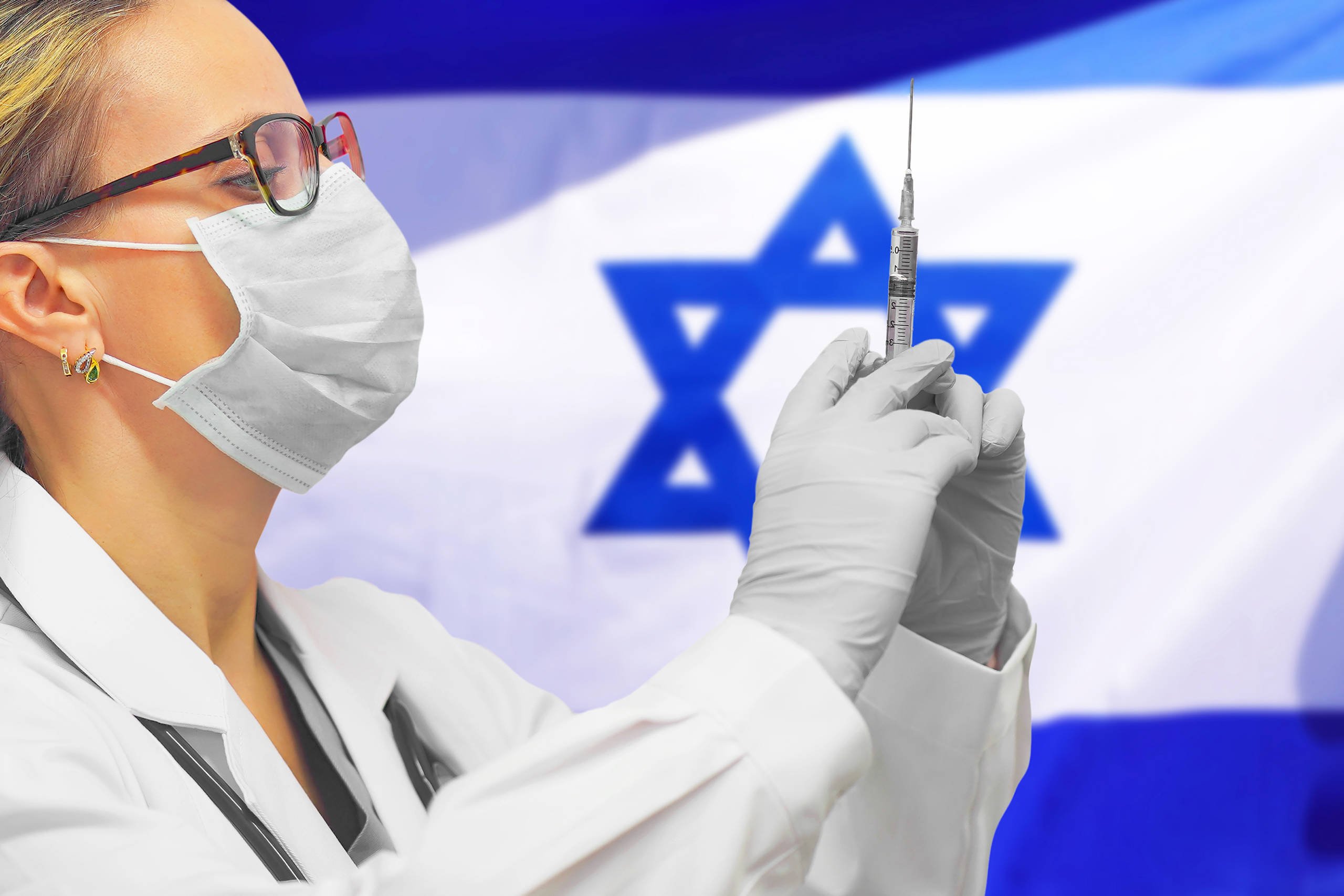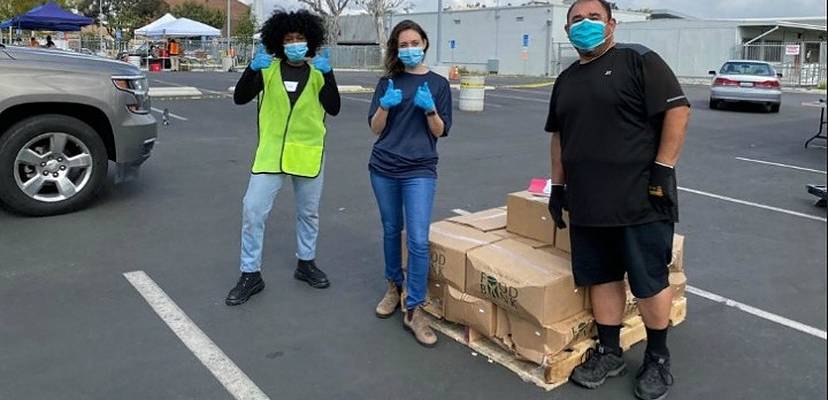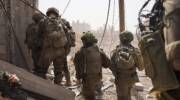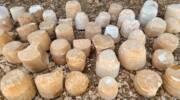“This deployment will go on for months, because even if the curve flattens, there’s going to be a long tail of people still in need of food and financial help,” said Seth Davis, CEO of IsraAID US.
By Gary Shapiro, The Algemeiner
Twenty-two-year-old Amir Kashfi arrives early in the morning around 6:30 a.m. outside a Los Angeles school to set up boxes of canned goods, pasta, rice and other non-perishables to dispense. A number of recipients line up by car or by foot by 8 a.m.
The need for this food pantry has spiked during the ongoing coronavirus crisis.
“There’s a huge increase in demand because of the pandemic,” said Kashfi, a volunteer with IsraAID, an Israel-based NGO that partners with Los Angeles Regional Food Bank and Team Rubicon, which is a US veterans organization, among others in these efforts. “It hurts my heart to see so many in need.”
“Our goal is to be there for the community,” said Seth Davis, chief executive officer of IsraAID US.
He noted that the short-term goal was to fill a gap and get food to people in need, but the long-term goal was to create a cadre in the community who can respond to such crises. In addition to Los Angeles, IsraAID has helped operate food banks in other California locations, including San Diego, Orange County, San Jose and Santa Barbara.
Davis said, “This deployment will go on for months, because even if the curve flattens, there’s going to be a long tail of people still in need of food and financial help.”
“These are unprecedented times,” Dr. Lucy Uber, another volunteer, said. “Food is a basic necessity that most of us take for granted.”
A pediatrician in the emergency room at Children’s Hospital Los Angeles, Uber reflected on the precariousness that many were experiencing at the moment. “Many of these people live in what is already referred to as a food desert,” said Uber. “Add the coronavirus crisis and there is financial devastation.”
“The full socioeconomic impact of the coronavirus crisis may not be known for years,” Uber said.
She connected with IsraAID through a classmate from high school, Farah Shamolian, who works for the NGO. “I went into medicine because I wanted to help people,” Uber said.
Uber, who attended medical school in Tel Aviv, said, “I wanted to keep Israel close to my heart.”
She is also part of the IsraAID Humanitarian Professionals Network, a collective of doctors, nurses, pharmacists, psychologists and others involved in humanitarian relief and disaster response. “Its goal is to educate and motivate people to be ready to respond to crises abroad and locally,” Uber said.
In 2018, IsraAID deployed Kashfi to Berlin, where he worked with Farsi-speaking refugees from Afghanistan, Iran and Tajikistan, as well Arab refugees from Iraq and Syria.
Kashfi said, “It was not lost on me that I’m a Persian Jewish kid from Los Angeles helping Arab and Muslim refugees through an Israeli organization in a country where the Holocaust happened. You can’t make that up.”
IsraAid, which has worked in 52 countries worldwide, has helped the US in crises before.
In 2005, IsraAID assisted those in the path of Hurricane Katrina. It also sent a team in 2012 to help with Superstorm Sandy recovery efforts. It has responded to Hurricane Harvey in Texas, Hurricane Michael in Florida and Hurricane Florence in the Carolinas. They were also responders to the more recent fire of Paradise, California, working with local community leaders and caregivers to deal with the trauma.
IsraAID is currently speaking with potential partners in helping New York state’s response to COVID-19. The organization already had a satellite office in New York.
What might the focus be? Davis said. “People put a lot of focus on protective gear, the physical injury and the loss of life, but people are not putting enough focus on mental health and the emotional injury.”
He added, “We don’t want people to get PTSD, but to have PTG or post-traumatic growth. We can build our skill set that caregivers, religious leaders and people in education have to help people bounce back stronger.”
Davis said part of the focus will be on helping children, educators and healthcare professionals.
IsraAID is not limited to the physical world in its efforts to assist. It also is helping in the virtual world. For instance, IsraAID designed a free online webinar to offer mental health support to those who experienced trauma during the COVID-19 crisis.
Devised in Israel at the headquarters of IsraAID by mental health and protection professionals. it offers 12 practical ways to reduce anxiety and stress.
Kashfi said, “IsraAID is not religious or political. It is a professional humanitarian organization. It’s a welcome side effect that our work reflects the values of Israel in a positive light.”

HELP ISRAELIS BATTLE CORONA!
Donate to the Corona Emergency Relief Fund. Coronavirus has taken a huge toll on the people of Israel. The poor, elderly and ill are most vulnerable.
Israeli soldiers, security officers and medical care providers operate under great danger and risk to life.
Over 1 million Israelis are out of work. Many cannot make ends meet. We provide financial aid, food, medical supplies and more. Funds are distributed where needed most. The time to act is now!
United with Israel extends a special note of appreciation to the Genesis Prize for their generous support.
Do You Love Israel? Make a Donation - Show Your Support!
Donate to vital charities that help protect Israeli citizens and inspire millions around the world to support Israel too!
Now more than ever, Israel needs your help to fight and win the war -- including on the battlefield of public opinion.
Antisemitism, anti-Israel bias and boycotts are out of control. Israel's enemies are inciting terror and violence against innocent Israelis and Jews around the world. Help us fight back!























